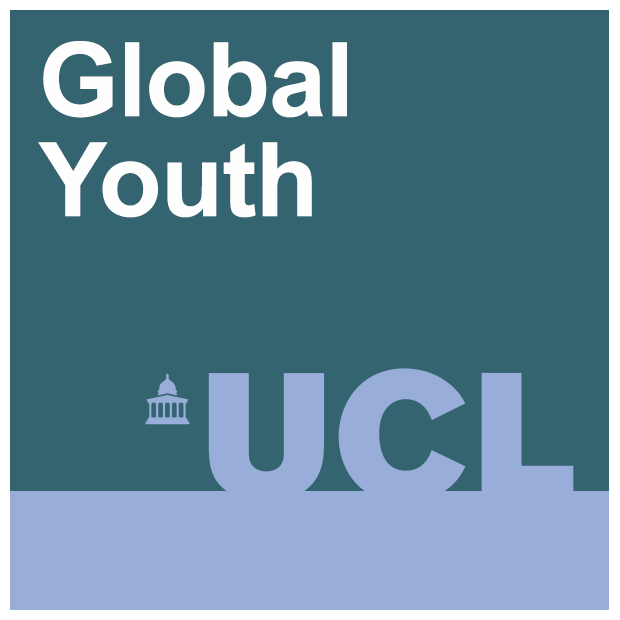Decolonising the curriculum – What can we learn from Global South theories and experiences?
By UCL Global Youth, on 2 November 2018
Recent student protests in South Africa and around the world have centred attention on what has been termed ‘epistemic justice’ – the need to ensure that knowledge is released from the rhetoric of modernity, the logic of coloniality and the illusion of globality. These events prompted Dr. Sharlene Swartz to consider key foundational questions in her own work, such as what does it mean to decolonise the curriculum? And what will it take to do so?
In her CGY research seminar on 31st October 2018, Dr. Swartz crafted a careful answer to these questions and presented Eleven Theses on Decolonising the Curriculum. In an attempt to show how these theses might be put into practice, and the difficulties that can be encountered, Dr. Swartz also described a current project in the field of youth studies: The Oxford Handbook of Global South Youth Studies. The Handbook, currently in preparation, offers an instructive case regarding how theory develops, travels, unravels and regenerates. Whilst showcasing new theoretical ways of understanding Southern youth’s life-worlds with its starkly differing material realities, she illustrated how this project offers ways to avoid essentialising and homogenising Southern experiences and to ensure a renewed global youth studies from which everyone benefits.
The slides from Dr. Swartz’s seminar are now available for download here.
Dr. Sharlene Swartz is Executive Director of the Transformative Education research programme at the Human Sciences Research Cou ncil in South Africa, an Adjunct Professor of Philosophy at the University of Fort Hare and an adjunct Associate Professor of Sociology at the University of Cape Town. She holds undergraduate degrees from the University of the Witwatersrand and the University of Zululand in South Africa; a Master’s degree from Harvard University and a PhD from the University of Cambridge. Her expertise and current research centres on the just inclusion of youth in a transforming society that includes interpersonal and communal notions of restitution. Her work is characterised by a focus on Southern theory, emancipatory methodologies and critical race theory. Before embarking on graduate studies, Sharlene spent 12 years at a youth NGO where she pioneered peer-led social justice programmes for school-going youth. She has published widely in academic journals and has authored or edited multiple books including Ikasi: the moral ecology of South Africa’s township youth (2009); Teenage Tata: Voices of Young Fathers in South Africa (2009); Youth citizenship and the politics of belonging (2013); Another Country: Everyday Social Restitution (2016), Moral eyes: Youth and justice in Cameroon, Nigeria, Sierra Leone and South Africa (2018) and Studying while black: Race, education and emancipation in South African universities (2018). She is the President of the International Sociological Association’s Sociology of Youth research committee and is the chair of the board of the Restitution Foundation, an NGO in South Africa.
ncil in South Africa, an Adjunct Professor of Philosophy at the University of Fort Hare and an adjunct Associate Professor of Sociology at the University of Cape Town. She holds undergraduate degrees from the University of the Witwatersrand and the University of Zululand in South Africa; a Master’s degree from Harvard University and a PhD from the University of Cambridge. Her expertise and current research centres on the just inclusion of youth in a transforming society that includes interpersonal and communal notions of restitution. Her work is characterised by a focus on Southern theory, emancipatory methodologies and critical race theory. Before embarking on graduate studies, Sharlene spent 12 years at a youth NGO where she pioneered peer-led social justice programmes for school-going youth. She has published widely in academic journals and has authored or edited multiple books including Ikasi: the moral ecology of South Africa’s township youth (2009); Teenage Tata: Voices of Young Fathers in South Africa (2009); Youth citizenship and the politics of belonging (2013); Another Country: Everyday Social Restitution (2016), Moral eyes: Youth and justice in Cameroon, Nigeria, Sierra Leone and South Africa (2018) and Studying while black: Race, education and emancipation in South African universities (2018). She is the President of the International Sociological Association’s Sociology of Youth research committee and is the chair of the board of the Restitution Foundation, an NGO in South Africa.
This seminar was facilitated by a grant from the UCL Global Engagement Fund.
 Close
Close



